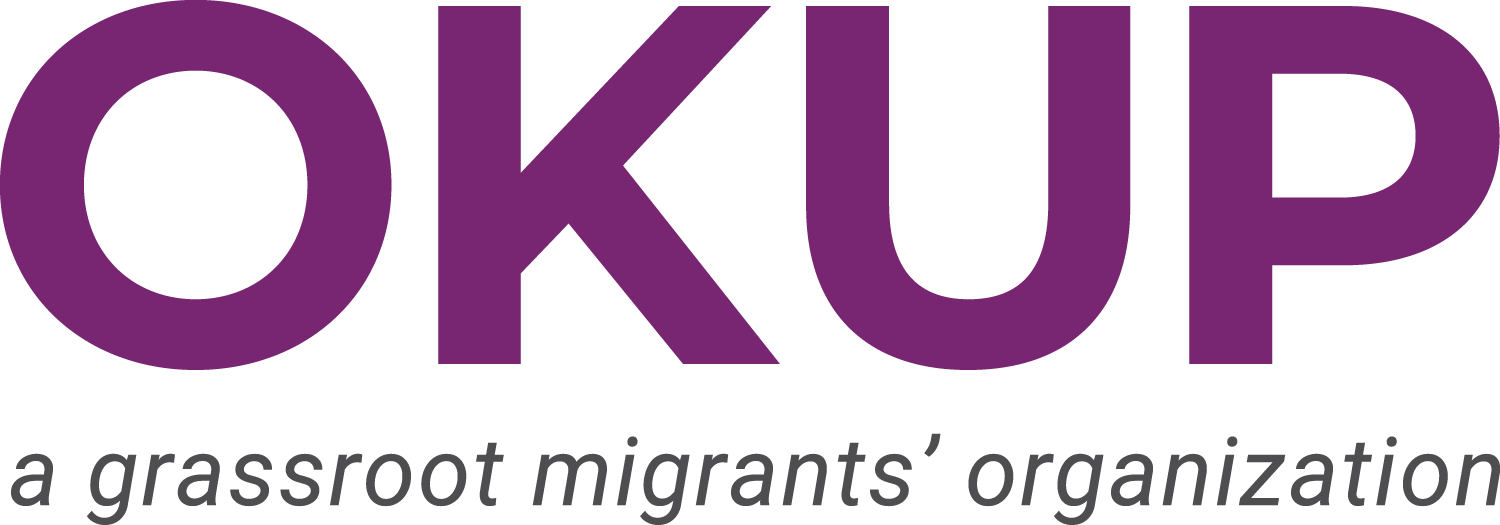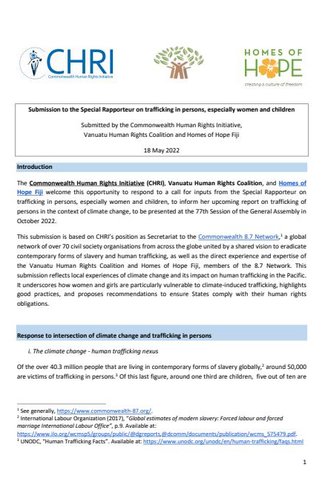Submission to the Special Rapporteur on Trafficking in Persons, especially Women and Children. Submitted by the Commonwealth Human Rights Initiative, Vanuatu Human Rights Coalition and Homes of Hope Fiji (Fiji)
2022
- Author
- Commonwealth Human Rights Initiative, Vanuatu Human Rights Coalition and Homes of Hope Fiji
- World region
- South Asia
- Origin of migration
- Fiji
- Area of transit
- No data available
- Destination of migration
- Fiji
- Who is affected
- Girls, Women
- Type of climatic event
-
Rapid-onset event
Cyclones hit Fiji in 2020 and 2021 resulting in loss, damage and displacement, increasing the vulnerability of those affected to human trafficking.
- Type of migration/mobility
-
Internal
- Destination industry or sector
-
Domestic work
- Type of modern slavery
-
Forced commercial sexual exploitation, Forced labour, Human trafficking
*(Human trafficking for forced sexual exploitation or forced labour)
- Link between climate change, migration and modern slavery
- Direct
- Key vulnerability factors
-
The effects of climate change tend to increase poverty and inequality and forcibly displace populations. In this context women and girls are more vulnerable as they face gender discrimination, violence and unequal access to education and employment. They can also experience social, psychological, and community isolation. The patriarchal structure of some indigenous cultures can thus contribute to modern slavery risks, as men can be in a position of control over them.
- Summary
-
The joint submission to the United Nations Special Rapporteur on trafficking in persons, especially women and children, was compiled by the Commonwealth Human Rights Initiative, Vanuatu Human Rights Coalition and Homes of Hope Fiji. It recognises that the effects of climate change increase the risk of modern slavery in small island developing states, where modern slavery is already prevalent and the effects of climate change are particularly acute. The effects of climate change and the consequent displacement amplify vulnerability to modern slavery, with women and girls particularly at risk.
- Recommendations
-
Policies and legislation should explicitly consider the links between climate change and human trafficking. Dialogue and action on the issues are of particular importance. Prevention measures to reduce the risk of human trafficking in the context of climate change should also be developed and attention should be paid to the specific needs of vulnerable groups in the context of climate change. Accurate, disaggregated data is needed to better understand and respond to this issue.



